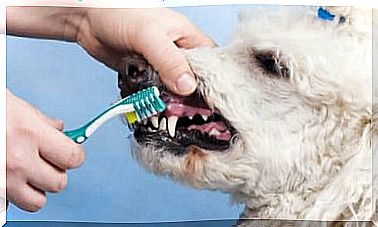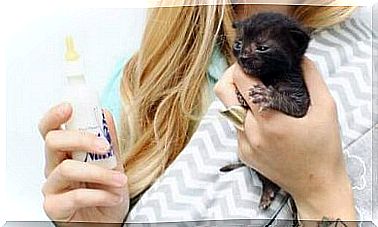Senile Dementia In Cats
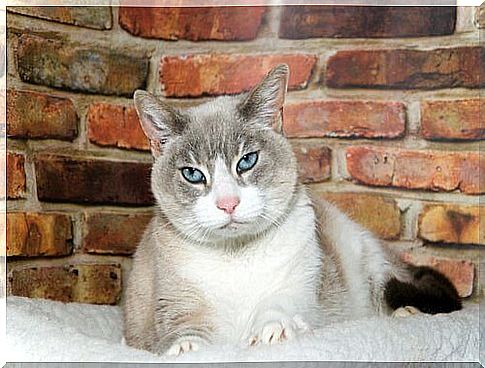
Like people, pets deteriorate physically and mentally as they age. That’s why we’ll present you with information about feline cognitive dysfunction, better known as senile dementia in cats.
Time, relentless with humans and animals
The passage of time produces inevitable physical changes in pussies. It can also cause, among other things, confusion and disorientation.
The domestic cats live on average 15 years. But the first signs of senile dementia in cats can appear around 10 or 11 years of age. And in felines that are over 15 years old, it is a very common disease.
It is necessary to consult a veterinarian at the slightest sign of illness. The professional will indicate the best steps to follow according to the characteristics of each pussy.
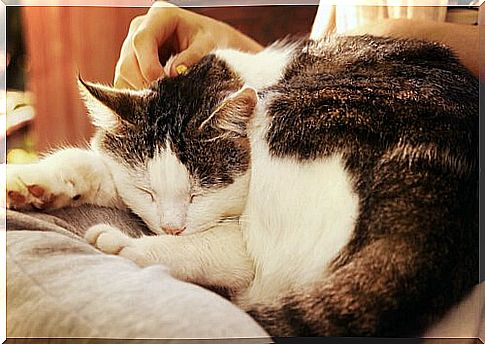
An irreversible disease, but one that can be delayed
A cat with cognitive impairment loses control of its own body and gradually becomes indifferent to its surroundings. Therefore, it is essential to know how to accompany and help the animal in these new circumstances.
Keep in mind that, as with humans, although deterioration cannot be reversed, it can be stopped or delayed. Also, dementia does not affect all animals equally.
Therefore, it is important to know how to recognize the symptoms of senile dementia in cats. And, of course, be aware of measures that help improve the quality of life of an animal in this situation.
What are the symptoms of senile dementia in cats
Among the signs that may indicate that a cat suffers from cognitive dysfunction, the following stand out:
- Behavior changes. You can ask for more attention or get more aggressive.
- Confusion. The animal wanders aimlessly. Chances are you can’t remember where the food, water, or litter box is.
- More frequent meows. They tend to meow more often, especially at night. Generally speaking, these cats are nervous or anxious about being alone or disoriented in the dark.
- Changes in sleep pattern. By losing interest in the surroundings, they sleep more during the day. However, they roam at night and meow more often.
- Disinterest in hygiene. The animal no longer cleans itself as it normally did. Because of this, the fur will look dull and unkempt. It also runs the risk of failing to feed.
- You can do the necessities outside the sandbox.
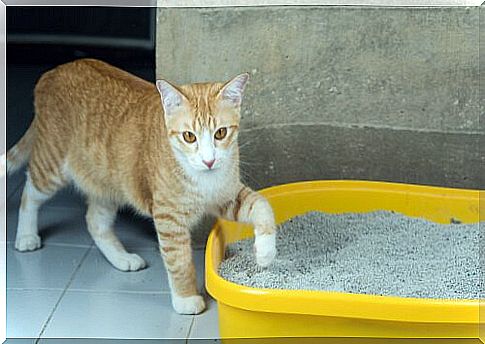
How to care for a cat with cognitive impairment
If the veterinarian confirms the diagnosis of senile dementia in your cat, in some cases, it may indicate pharmacological treatment. Anyway, there are many steps you can take to improve your pussy’s life. For example:
- Keep changes to a minimum. It is not necessary to move things around: bowls, beds, scratchers, toys, etc. Do not move, add or remove furniture and other objects.
- Avoid stressful situations. It is important to reserve a place where the animal can be calm. Especially if there are strange movements or noises in the house. Avoid receiving visitors or carrying out renovations with him at home.
- As much as possible, increase playtime and play time to keep the kitten active and stimulated.
- Brush the animal frequently, cleaning it with wet wipes. This helps keep the coat healthy and beautiful. Don’t forget to sanitize the pussy’s eyes and ears.
- Place ramps in case the animal is no longer able to climb the places where it would like to stay. Or leave some lights on to avoid nighttime disorientation.
- Offer a quality diet as directed by your veterinarian.
Treat him with great care. This, without a doubt, is the most important thing to do in cases of senile dementia in cats.


